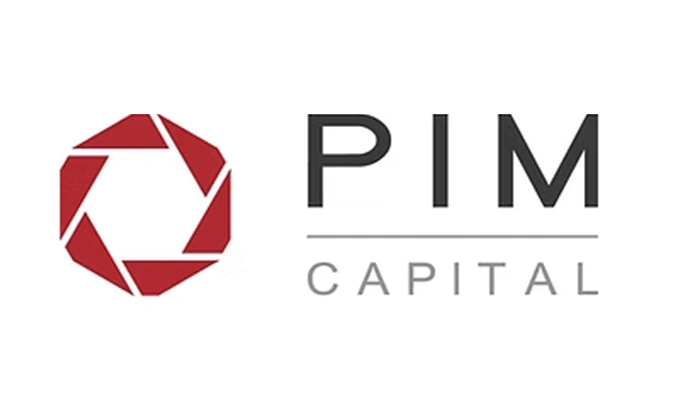How The EU Wants To Regulate Crypto

John E. Kaye
- Published
- Banking & Finance, Home

With Bitcoin up, Ethereum and its associated projects looking promising, 2022 is shaping up to be a good year for crypto. Even memecoins such as dogecoin are performing well in the cryptocurrency markets! However, the prospect of stricter and strengthened regulations being placed upon the crypto markets by the EU is concerning.
This article will discuss some key points concerning how the EU aims to regulate the crypto markets, as well as some speculations on what this could mean for cryptocurrency investors.
The MiCA Regulatory Framework
Facebook announced that it was creating a new global payments network powered by a new cryptocurrency known as ‘Libra’ (now renamed Facebook Diem) back in 2019. Major governments around the world balked at the idea of an already enormous company running its own cryptocurrency. Both the US and EU began movements to regulate the whole concept. Facebook quickly altered the operational terms of the currency in an attempt to dampen the flames, but the regulatory genie was out of the bottle. Lawmakers are now in the process of re-examining cryptocurrency and blockchain projects.
The EU now aims to regulate the cryptocurrency markets and will do so via a range of different regulatory measures. It will do so by using its new framework known as MiCA (Markets in Crypto-Assets) which is a brief guide that explains how regulations will affect digital assets that will be traded within the crypto markets. Some key things that MiCA will include are rules on how digital assets will be issued as well as IPOs (Initial Public Offerings). It will grant companies and corporations permission to trade freely within the EU, and it will also include additional rules that stablecoins providers will have to abide by.
Will The EU Regulations Affecting Crypto Become A Reality?
The current plans for the MiCA framework and other related legislation are currently being drafted and are expected to be completed at some point in 2022. However, these regulations will then need to be approved before they can be made into law, so the legislation is likely to be tied up in red tape for the very near future.
However, these regulations will indeed become a reality within the next few years. Therefore, the way digital assets are traded and issued will change.
When Will The EU Regulations Begin To Affect The Cryptocurrency Markets?
If they are approved, as with any type of legislation, it is often a gradual process that takes place over a number of years. Since the MiCA framework is expected to be completed in 2022, with a view to getting them approved and put into law around the same time, traders and investors could expect the regulations to start affecting the markets in late 2022, or early 2023. The European Commission aims to get the MiCA framework, along with other important legislation affecting BigTech and DLT (Distributed Ledger Technology) into operation by 2024.
It is not yet known how the UK will advance in relation to crypto-assets and the potential legislation that will govern them, but the UK is expected to announce their own proposals in the near future. Some even expect news on the subject in 2022.
How Might These Regulations Affect Cryptocurrency Trading?
Based on the current information available, it would seem that investors could expect restrictions on the amounts they could invest within a given session. Digital asset providers might also be subject to restrictions on how much they could offer over time. There might also be a series of different regulations put into effect that might transform financial trading altogether.
RECENT ARTICLES
-
 Managing cross-border risks in B2B e-commerce
Managing cross-border risks in B2B e-commerce -
 J.P. Morgan launches first tokenised money market fund on public blockchain
J.P. Morgan launches first tokenised money market fund on public blockchain -
 Aberdeen agrees to take over management of £1.5bn in closed-end funds from MFS
Aberdeen agrees to take over management of £1.5bn in closed-end funds from MFS -
 Enterprise asset management market forecast to more than double by 2035
Enterprise asset management market forecast to more than double by 2035 -
 EU Chamber records highest number of entries for 2025 China Sustainable Business Awards
EU Chamber records highest number of entries for 2025 China Sustainable Business Awards -
 Inside Liechtenstein’s strategy for a tighter, more demanding financial era
Inside Liechtenstein’s strategy for a tighter, more demanding financial era -
 ‘Stability, scale and strategy’: Christoph Reich on Liechtenstein’s evolving financial centre
‘Stability, scale and strategy’: Christoph Reich on Liechtenstein’s evolving financial centre -
 Bridging tradition and transformation: Brigitte Haas on leading Liechtenstein into a new era
Bridging tradition and transformation: Brigitte Haas on leading Liechtenstein into a new era -
 Liechtenstein in the Spotlight
Liechtenstein in the Spotlight -
 Fiduciary responsibility in the balance between stability and global dynamics
Fiduciary responsibility in the balance between stability and global dynamics -
 Neue Bank’s CEO on stability, discipline and long-term private banking
Neue Bank’s CEO on stability, discipline and long-term private banking -
 Research highlights rise of 'solopreneurs' as technology reshapes small business ownership
Research highlights rise of 'solopreneurs' as technology reshapes small business ownership -
 Philipp Kieber on legacy, leadership and continuity at Interadvice Anstalt
Philipp Kieber on legacy, leadership and continuity at Interadvice Anstalt -
 Building global-ready funds: how South African managers are scaling through offshore platforms
Building global-ready funds: how South African managers are scaling through offshore platforms -
 Global billionaire wealth hits record as relocation and inheritance accelerate, UBS finds
Global billionaire wealth hits record as relocation and inheritance accelerate, UBS finds -
 Human resources at the centre of organisational transformation
Human resources at the centre of organisational transformation -
 Liechtenstein lands AAA rating again as PM hails “exceptional stability”
Liechtenstein lands AAA rating again as PM hails “exceptional stability” -
 Lusaka Securities Exchange surges ahead on reform momentum
Lusaka Securities Exchange surges ahead on reform momentum -
 PROMEA leads with ESG, technology and trust in a changing Swiss market
PROMEA leads with ESG, technology and trust in a changing Swiss market -
 Why collective action matters for pensions and the planet
Why collective action matters for pensions and the planet -
 Structuring success with Moore Stephens Jersey
Structuring success with Moore Stephens Jersey -
 PIM Capital sets new standards in cross-jurisdiction fund solutions
PIM Capital sets new standards in cross-jurisdiction fund solutions -
 Innovation, advisory and growth: Banchile Inversiones in 2024
Innovation, advisory and growth: Banchile Inversiones in 2024 -
 Digitalization, financial inclusion, and a new era of banking services: Uzbekistan’s road to WTO membership
Digitalization, financial inclusion, and a new era of banking services: Uzbekistan’s road to WTO membership -
 Fermi America secures $350m in financing led by Macquarie Group
Fermi America secures $350m in financing led by Macquarie Group



























